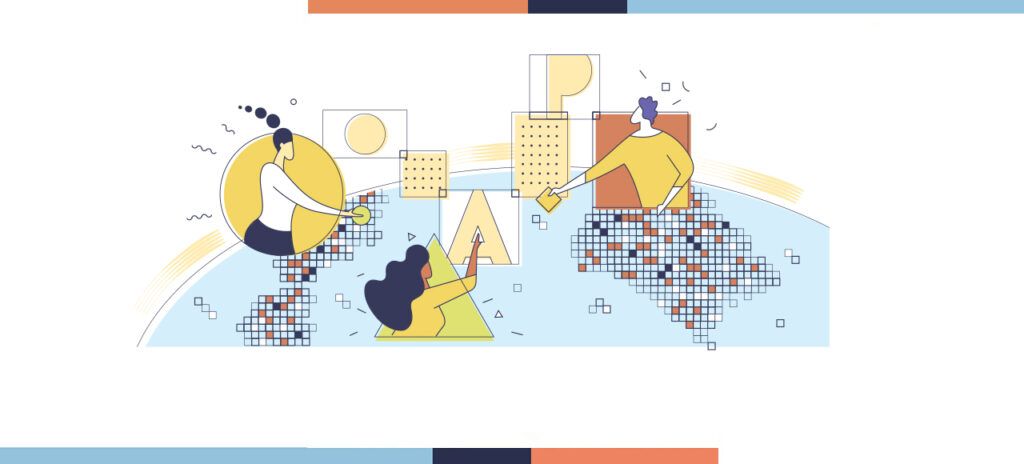What do both events have in common?
Language needs education and education needs language. In a globally networked and multicultural world, it is particularly important to overcome language barriers in the education sector. Linguistic diversity around the globe is shrinking rapidly. When a language disappears ancient knowledge and cultural heritage disappear with it.
Quite simply, education is key to language preservation and language is the gateway to education.
On February 21 every year we celebrate International Mother Language Day. Created by UNESCO in 1999, this is a day for recognizing the importance of all the languages of the world and what they contribute to our lives both on an individual and collective level. Taking place almost at the same time was didacta, the leading trade fair and training event for the entire education sector, which was held in Cologne from February 20 to 24.
didacta is the place to see what impulses and ideas are driving changes in the education industry and the popular fair promotes a dynamic and forward-thinking dialogue around education. This year the theme of inclusion was a core focus and particularly the necessity to develop flexible education systems, making them more accessible for all learners.Similarly, awareness days exist to open conversations. They draw to our attention areas for concern worldwide, generate public action, highlight discrimination or are a celebration of human achievement and cultural diversity. Sometimes they exist for all of these reasons. International Mother Language Day is the latter.
Of the approximately 7000 distinct and unique tongues spoken globally today it is predicted that in the next hundred years, 50% of these will have fallen out of use. Although languages have always disappeared (and new ones created), the rate at which this is happening today is both shocking and worrying.
Economic pressure, conflict, migration and social changes all contribute to language loss and are hard to prevent. Sadly, when a language disappears, we lose more than just words and phrases, we lose a precious and irreplaceable piece of the human jigsaw.
Why is it important to preserve languages?
Languages offer a pathway to education
According to UNESCO, 40% of the world’s population can’t access education in a language they speak or understand and in some places, this can be as high as 90%.
Research has shown that when children are given learning opportunities in their mother tongue – the first language they hear and speak at home – they are more likely to enroll in school and subsequently succeed in the classroom. Their experience is then enriched with help from their parents who themselves can communicate with teachers in a language they feel comfortable in. Mother language education also benefits children from isolated or disadvantaged communities and girls in particular, for whom contact with official languages can be limited.
Unfortunately, in regions where the home language is an indigenous, minority or non-dominant language, the likelihood of receiving education in this language will be much reduced. Many of these languages are also endangered and a lack of resources means that students are less likely to be able to use them in school.
Languages communicate our understanding
We often talk about languages as if they were a living thing. We refer to them as ‘being born’, ‘alive’ and ‘dying’. This is probably because languages are so complex that our relationship with them feels organic. Although languages don’t possess these human properties in reality, they are closely linked to the natural world. High densities of languages often occur where biodiversity is abundant and as plant and animal species become extinct, languages disappear alongside them.
When languages fall out of use, humanity suffers a fundamental loss of valuable knowledge and long-lived culture.
Languages that have evolved over centuries and yet remain unwritten, often contain important and undocumented information about natural habitats. They can pass on knowledge about plants, crops and medicines that have yet to be ‘discovered’ by modern science and when they disappear this knowledge disappears with them. Equally these languages are the expression of unparalleled human cultures and experience.
Languages are part of our identity
For those of us who are multilingual, we know that speaking a different language can change our perception of the world and give us another point of view. It can also bring out different parts of our personality. Our mother tongue connects us to our families, neighborhoods and communities and contributes to our sense of belonging. Our language is part of who we are.
Speaking our mother language is, therefore, a basic human right and not being able to access this can cause feelings of exclusion and insignificance. Using our first language is known to encourage our well-being, self-esteem and sense of identity.
Across the globe multilingualism is the norm. Research suggests that being bilingual is good for us and can contribute to more elastic thought processes, make us more empathetic and even keep dementia at bay.
To put it simply the more languages there are in the world the better. There is plenty of room in our heads, our classrooms and our societies for the thousands of languages that still exist and safeguarding them all should be our collective responsibility.
Mother language matters in the translation industry
In the translation industry we value every single language and understand the vital importance of mother language competence. All our translators and interpreters at t’works work in their first languages, giving them a deep-rooted awareness of both linguistic and cultural nuance. This enables them to produce the most appropriate translations for the desired outcome and help our customers achieve their global business objectives.

